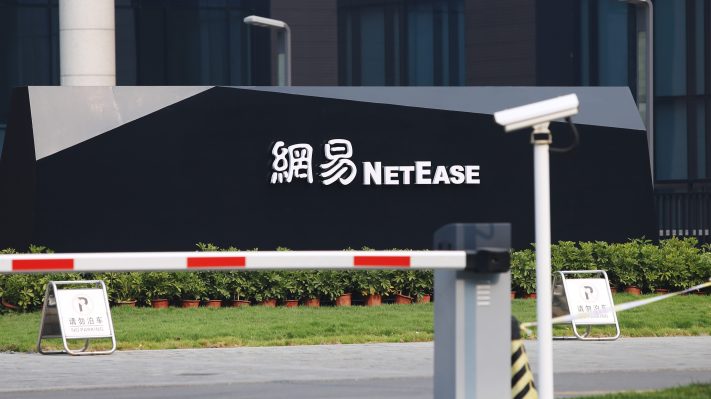NetEase, a Chinese technology company and billion-dollar video-game publisher, has acquired French video-game studio Quantic Dream. Terms of the deal were not disclosed.
The deal means that NetEase now has its first studio in Europe, and comes just a few months after the Hangzhou-based company launched its first hub in the U.S., located in Austin, Texas.
Founded in 1997, NetEase has emerged as one of the world’s top 10 gaming companies by revenue, ahead of Nintendo and Electronic Arts, but behind its arch rival Tencent, which sits in pole position. Quantic Dream, meanwhile, launched out of France the same year as NetEase did in China, though it has chosen a more modest path to growth, with some 200 employees today, and has remained entirely private with minimal outside funding.
However, it’s worth noting that NetEase — which trades on the Nasdaq with a current market cap of more than $57 billion — made an undisclosed minority investment in Quantic Dream back in 2019. So today’s announcement that it has gone all-in and bought the company outright perhaps shouldn’t come as a major surprise, particularly at a time when NetEase is seemingly on an overseas expansion mission.
NetEase also invested $100 million in U.S. video game company Bungie back in 2018, though Sony took Bungie off the menu when it swooped in to acquire the firm in a $3.6 billion deal that closed last month.
Consolidation
Elsewhere, there has been a flurry of consolidation across the gaming realm of late. Just this week, Sony announced it was buying Savage Game Studios, while Take Two recently closed its $12.7 billion Zynga acquisition. And Microsoft’s proposed $69 billion offer for Activision Blizzard is currently facing regulatory scrutiny.
So NetEase’s push into Europe very much fits into a broader trend that has seen gaming companies of all sizes targeted by larger firms looking for a bigger piece of the $200 billion video game market.
While Quantic Dream has only made around five games since its inception, last year it announced that it had been commissioned by Lucasfilm to develop a new game called Star Wars Eclipse, something that may have spurred Netease to go all-in on Quantic Dream. On top of that, rumors recently emerged that Quantic Dream has been struggling to hire for the game, which is due out some time in the next few years, so having a well-financed corporate parent may well change Quantic Dreams’ fortunes on that front. In a blog post today, Quantic Dream wrote:
In order to continue our development and presence in the world, but also to fund other studios and become an international publisher, larger investments are needed for us to keep building our technology and infrastructure, to deliver ever more impressive next-generation games, to expand our team and to develop several projects simultaneously.
As a result of the deal, NetEase said that Quantic Dream will continue to operate as an independent entity out of France.
Globalizing
NetEase’s recent moves to open its first U.S. studio reflects the growing ambitions of Chinese gaming firms to build a physical presence overseas, transitioning from an era of funding and licensing from their foreign peers.
Buoyed by money made from two decades of wild growth until the recent industry clampdown, China’s gaming giants have been acquiring shares of or buying foreign studios for years.
Tencent famously built a massive portfolio by scooping up stakes in some of the world’s most prominent gaming studios, including Supercell, Riot, Activision Blizzard, Epic Games and Roblox. Under the helm of Simon Zhu, NetEase’s president of global investment and partnerships, the company seems to be playing some aggressive catchup.
NetEase is no stranger to working with foreign peers. The firm’s tie-up with Activision Blizzard dates back to 2008 when it became the publisher of StarCraft in China. It has subsequently published other Activision franchises like World of Warcraft in the world’s largest gaming market and had plans to make a mobile version of the popular multiplayer online role-playing game before a recent fallout.
With its buyout of Quantic Dream, it remains to be seen whether NetEase will extend its in-house presence to Europe as it did with the U.S., where it now has an on-the-ground development and publishing team. Tencent has already expanded by opening a handful of overseas branches for its lucrative studios TiMi and Lightspeed.
